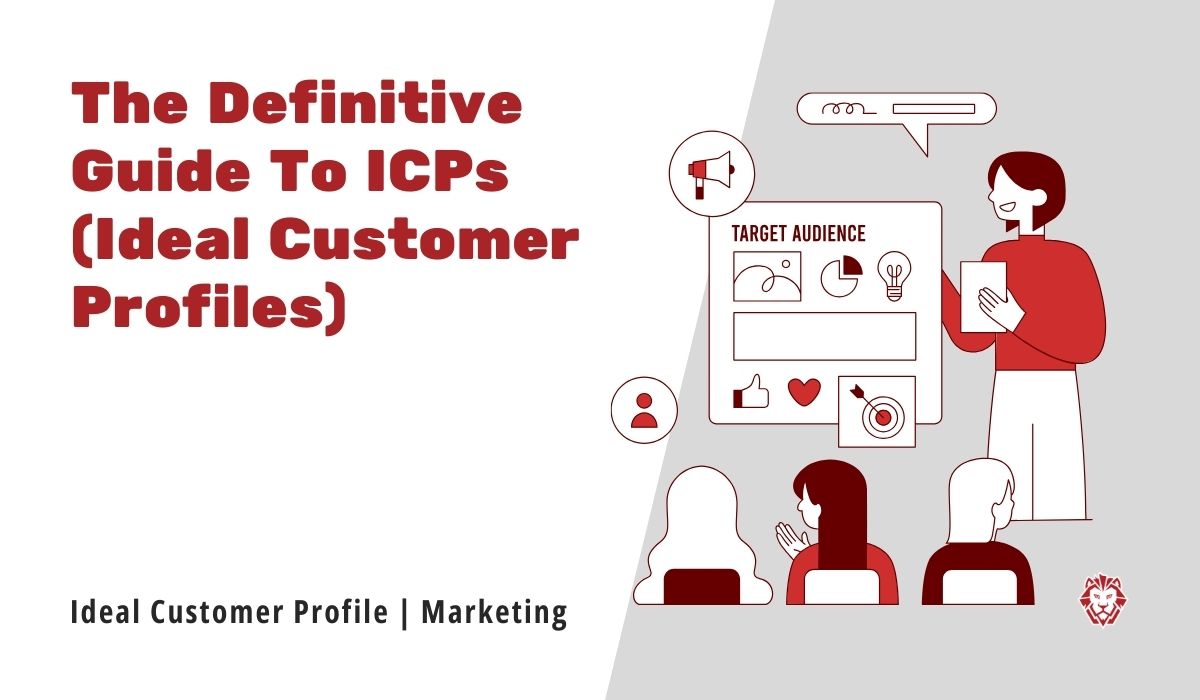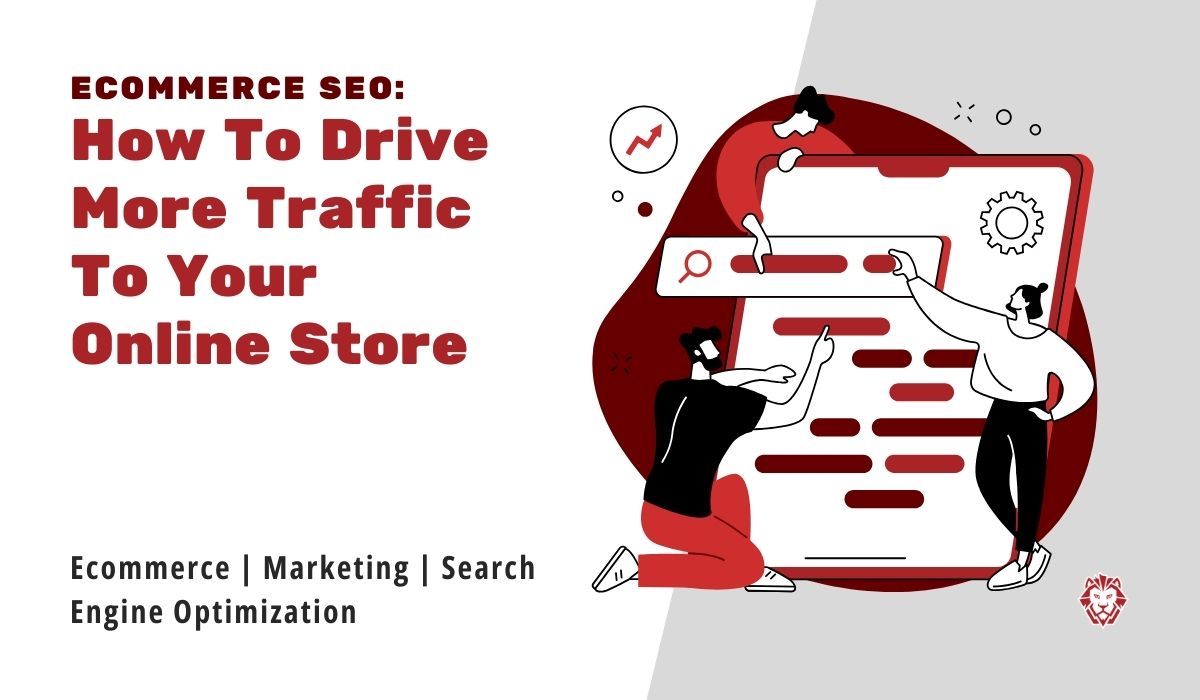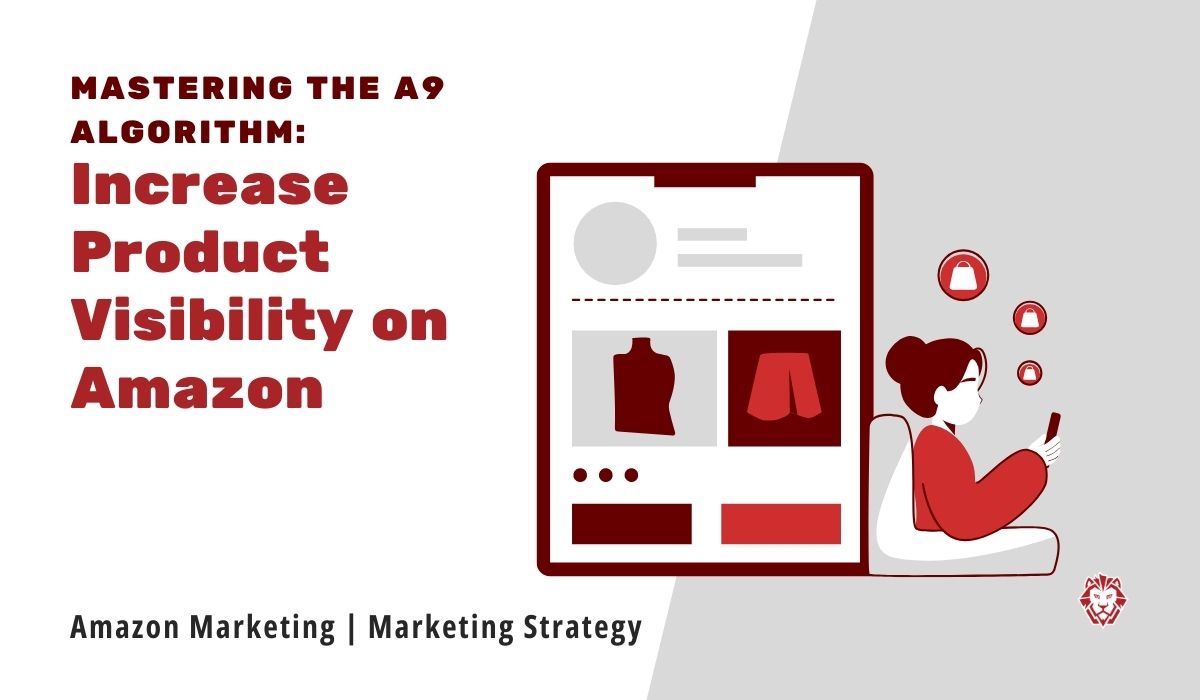
The Definitive Guide To ICPs (Ideal Customer Profiles)
The Definitive Guide To ICPs (Ideal Customer Profiles)
Understanding your ideal customer is crucial for success, in today’s competitive business landscape. To effectively target and engage potential customers, businesses often develop Ideal Customer Profiles (ICPs). This guide will provide a comprehensive overview of ICPs, including their importance, key elements, creation process, implementation in marketing strategies, and their role in sales optimization. Additionally, we will explore how to evaluate the success of your ICP strategy and make necessary adjustments for better results.
Understanding the Concept of Ideal Customer Profiles
Before diving into the specifics, it’s important to grasp the concept of Ideal Customer Profiles. ICPs are comprehensive descriptions of your ideal customers – the individuals or companies who are most likely to benefit from your products or services. By creating detailed profiles, businesses can tailor their marketing and sales efforts to effectively reach and engage their target audience.
When developing an Ideal Customer Profile, it’s crucial to consider various factors that contribute to the success of your business. These factors include not only the demographics and psychographics of your ideal customers but also their behaviors, preferences, and purchasing patterns. By understanding these aspects, you can gain valuable insights into how to position your products or services in the market and how to effectively communicate with your target audience.
Ideal Customer Profiles help businesses identify the pain points and challenges that their customers face. By understanding these pain points, businesses can develop innovative solutions that address the specific needs of their ideal customers. This customer-centric approach not only enhances customer satisfaction but also fosters long-term customer loyalty and advocacy.
The Importance of ICPs in Business Strategy
ICPs play a critical role in defining and executing a solid business strategy. By identifying and understanding your ideal customers, you can align your resources and efforts towards meeting their specific needs. This targeted approach helps improve customer acquisition, retention, and overall business growth.
ICPs serve as a valuable tool for stakeholder alignment and decision-making, ensuring all aspects of your business support the needs and preferences of your ideal customers. By involving key stakeholders in the development of Ideal Customer Profiles, businesses can foster a shared understanding of the target audience and create a unified approach to serving their customers.
Additionally, Ideal Customer Profiles enable businesses to optimize their marketing and sales strategies. By tailoring your messaging, content, and offers to resonate with your ideal customers, you can increase the effectiveness of your marketing campaigns and improve conversion rates. This targeted approach not only saves time and resources but also maximizes the return on investment for your marketing efforts.
Key Elements of an Ideal Customer Profile
An effective ICP should include several key elements that collectively paint a comprehensive picture of your ideal customer. These elements typically include demographic information, such as age, gender, and location, as well as psychographic details like interests, values, and pain points. By considering both the demographics and psychographics, businesses can create highly targeted marketing campaigns that resonate with their ideal customers.
However, it’s important to note that Ideal Customer Profiles go beyond just demographics and psychographics. They also encompass other crucial details such as the customer’s industry, job title, company size, and revenue. These additional elements provide businesses with a deeper understanding of their ideal customers’ specific needs and challenges, allowing them to develop tailored solutions that address these pain points.
Ideal Customer Profiles should also consider the customer’s buying behavior and preferences. By analyzing factors such as the customer’s preferred communication channels, buying frequency, and decision-making process, businesses can optimize their sales strategies and provide a seamless customer experience.
Ideal Customer Profiles are essential tools for businesses looking to effectively target and engage their ideal customers. By understanding the concept of ICPs, recognizing their importance in business strategy, and including key elements in their profiles, businesses can enhance their marketing and sales efforts, drive customer satisfaction, and achieve sustainable growth.
Steps to Create Your Ideal Customer Profile
Creating an Ideal Customer Profile (ICP) is a crucial step in developing a successful business strategy. By understanding your target audience and their specific needs, you can tailor your products or services to meet their expectations. In this guide, we will walk you through the process of creating an ICP, providing you with valuable insights to help you achieve your business goals.
Identifying Your Existing Customer Base
The first step in creating an ICP is to analyze your existing customer base. Take a closer look at the customers who have shown consistent loyalty and are highly satisfied with your products or services. Identify their common characteristics, such as age, gender, location, and occupation. Additionally, consider their purchasing behaviors, such as frequency, average order value, and preferred payment methods. By understanding these key factors, you can begin to identify patterns that will inform your ICP development.
It is essential to examine your customers’ engagement patterns. Are they active on social media? Do they frequently interact with your brand through email campaigns or online forums? Understanding how your customers engage with your business will provide valuable insights into their preferences and behaviors.
Analyzing Customer Data for ICP Development
Once you have identified your most satisfied customers, it’s time to dig deeper into the data. Utilize analytics tools to analyze their demographics, purchasing behaviors, and engagement patterns. Look for commonalities and trends that can further inform your ICP development. Additionally, consider conducting surveys or interviews to gather qualitative insights directly from your existing customers. This will provide you with a deeper understanding of their motivations, pain points, and aspirations.
It is important to analyze your competitors’ customer base. By studying their customers’ characteristics and behaviors, you can gain a better understanding of the broader market and identify potential opportunities for growth. This analysis will help you refine your ICP and differentiate your business from competitors.
Refining Your ICP Over Time
Creating an ICP is an ongoing process. As your business evolves and your understanding of your customers deepens, it’s important to refine and update your ICP accordingly. Regularly review and analyze customer data and feedback to ensure your ICP accurately reflects the needs and preferences of your ideal customers.
Additionally, consider leveraging new technologies and data sources to enhance your ICP development. For example, artificial intelligence and machine learning algorithms can provide valuable insights by analyzing vast amounts of customer data. By staying up-to-date with the latest advancements in data analysis, you can continuously improve your ICP and stay ahead of the competition.
Remember, an effective ICP is not static but rather a dynamic representation of your target audience. Continuously monitor market trends, adapt to changing customer needs, and refine your ICP to ensure your business remains relevant and successful.
Implementing ICPs in Your Marketing Strategy
With a well-defined ICP in hand, it’s time to integrate it into your marketing strategy. By personalizing your marketing efforts to align with your ideal customers’ preferences and pain points, you can increase engagement and drive better results.
But how exactly can you implement ICPs in your marketing strategy? Let’s dive deeper into the steps you can take to leverage your ICP and maximize its impact.
Personalizing Marketing Efforts with ICPs
Utilize the insights gained from your ICP to create targeted marketing campaigns. Tailor your messaging, content, and advertising strategies to resonate with your ideal customers. By speaking directly to their needs and desires, you can build stronger connections and drive brand loyalty.
For example, if your ICP consists of young professionals who value sustainability, you can create content that highlights your company’s eco-friendly practices and showcases how your products or services contribute to a greener future. By aligning your messaging with their values, you can capture their attention and differentiate yourself from competitors.
Personalizing your marketing efforts doesn’t stop at content creation. You can also leverage your ICP to optimize your website’s user experience. By understanding your ideal customers’ preferences, you can design a website that is visually appealing, easy to navigate, and tailored to their specific needs. This can lead to higher conversion rates and increased customer satisfaction.
Enhancing Customer Engagement through ICPs
Engaging with your ideal customers goes beyond personalized marketing campaigns. Utilize your ICP to inform customer support strategies and create exceptional experiences. By understanding your customers’ pain points, you can proactively address their concerns, provide timely solutions, and build long-term relationships based on trust and satisfaction.
For instance, if your ICP includes small business owners who often struggle with technical issues, you can offer dedicated customer support channels specifically for them. This could include a priority hotline or a live chat feature with technical experts who can quickly resolve their problems. By providing exceptional customer support tailored to their needs, you can foster loyalty and turn them into brand advocates.
Your ICP can also guide your product development efforts. By understanding your ideal customers’ pain points and desires, you can identify opportunities to improve your existing products or create new ones that cater to their specific needs. This customer-centric approach can lead to higher satisfaction rates and increased customer retention.
Implementing ICPs in your marketing strategy is crucial for driving better results and building strong relationships with your ideal customers. By personalizing your marketing efforts and enhancing customer engagement, you can create a competitive advantage and position your brand for long-term success.
The Role of ICPs in Sales Optimization
ICPs (Ideal Customer Profiles) are not only valuable in marketing strategies but also play a pivotal role in sales optimization. By streamlining your sales process and focusing your efforts on high-potential leads, you can increase sales efficiency and optimize your revenue generation.
Streamlining Sales Process with ICPs
An ICP enables your sales team to prioritize leads that align with your ideal customer profile. By targeting leads that have the highest potential to convert, your sales team can focus their efforts on closing deals that are more likely to result in long-term, satisfied customers.
When it comes to streamlining the sales process, ICPs provide valuable insights into the characteristics and behaviors of your ideal customers. By analyzing data and identifying common traits among your most successful customers, you can create a detailed ICP that outlines the specific attributes and demographics of your target audience.
For example, if you are a software company targeting small businesses, your ICP may include criteria such as company size, industry, technology stack, and pain points. By having a clear understanding of your ideal customer, your sales team can efficiently identify and prioritize leads that fit within this profile.
ICPs can help your sales team identify potential roadblocks in the sales process. By understanding the challenges and objections that your ideal customers may face, your sales team can proactively address these concerns and tailor their approach to overcome objections. This not only saves time but also increases the likelihood of closing deals.
Increasing Sales Efficiency with ICPs
With a clear understanding of your ideal customer, your sales team can customize their sales strategies to better resonate with potential customers. By tailoring their approach, they can speak directly to your ideal customers’ pain points, showcase how your products or services meet their needs, and ultimately improve overall sales efficiency.
ICPs provide valuable insights into the preferences, motivations, and pain points of your target audience. Armed with this knowledge, your sales team can craft compelling sales messages that address the specific challenges and goals of your ideal customers.
For instance, if your ICP reveals that your ideal customers are concerned about scalability and ease of use, your sales team can emphasize these features during their sales pitches. By highlighting how your product or service can help them overcome these challenges, you increase the likelihood of capturing their interest and closing the deal.
In addition to tailoring sales messages, ICPs also enable your sales team to identify the most effective communication channels for reaching your ideal customers. By understanding their preferred methods of communication, whether it’s email, phone calls, or social media, your sales team can engage with potential customers in the most effective and efficient way.
ICPs can help your sales team identify cross-selling and upselling opportunities. By understanding the needs and preferences of your ideal customers, your sales team can identify additional products or services that may be of interest to them. This not only increases revenue but also strengthens the relationship with your customers.
ICPs are a powerful tool for sales optimization. By streamlining the sales process and increasing sales efficiency, ICPs enable your sales team to focus their efforts on high-potential leads and close deals that are more likely to result in long-term, satisfied customers.
Evaluating the Success of Your ICP Strategy
As with any strategy, it’s crucial to evaluate the effectiveness of your ICP strategy. By measuring key metrics and analyzing the impact of your ICP on your business performance, you can identify areas for improvement and make necessary adjustments.
When evaluating the success of your ICP strategy, it’s important to consider not only the overall outcomes but also the specific metrics that indicate its effectiveness. These metrics can provide valuable insights into how well your ICP is working and whether it’s delivering the desired results.
One key metric to consider is the customer acquisition rate. This metric measures how successful your ICP strategy is in attracting new customers. By tracking the number of new customers acquired within a specific period, you can determine whether your ICP is effectively targeting and reaching your ideal customers.
Another important metric is the customer retention rate. This metric measures the percentage of customers who continue to do business with your company over time. A high customer retention rate indicates that your ICP is successfully identifying and attracting customers who are likely to remain loyal to your brand.
Customer satisfaction scores are also crucial when evaluating the success of your ICP strategy. By surveying your customers and gathering feedback on their satisfaction levels, you can assess how well your ICP is meeting their needs and expectations. High customer satisfaction scores indicate that your ICP is effectively targeting customers who are a good fit for your products or services.
Finally, revenue generated from ideal customers is a key metric to consider. This metric measures the financial impact of your ICP strategy by tracking the amount of revenue generated from customers who fit your ideal customer profile. By analyzing this metric, you can determine whether your ICP is driving profitable customer relationships and contributing to your overall business success.
Adjusting Your ICP Strategy for Better Results
If you find that your ICP strategy is not delivering the desired results, it’s important to be open to adjustments. Analyze the available data, gather feedback from customers and sales teams, and refine your ICP accordingly.
One way to adjust your ICP strategy is to revisit and update your ideal customer profiles. As market conditions change and customer preferences evolve, it’s essential to ensure that your ICP accurately reflects the characteristics and needs of your target audience. By conducting market research and staying up-to-date with industry trends, you can identify any shifts in your ideal customer profile and make the necessary adjustments to your ICP strategy.
Another way to improve your ICP strategy is to enhance your marketing and sales efforts. By aligning your messaging, content, and channels with your ideal customer profile, you can effectively reach and engage your target audience. Consider leveraging customer data and insights to personalize your marketing campaigns and tailor your sales approach to better resonate with your ideal customers.
Continuous monitoring and analysis of key metrics are essential when adjusting your ICP strategy. By regularly reviewing the performance of your ICP and comparing it against your desired outcomes, you can identify areas for improvement and make data-driven decisions. This iterative approach allows you to refine your ICP strategy over time, ensuring its ongoing effectiveness in meeting the ever-changing needs of your ideal customers.
Developing and implementing an effective ICP strategy is essential for businesses seeking to thrive in today’s competitive market. By understanding the concept of ICPs, creating detailed profiles, incorporating them into your marketing and sales strategies effectively, and evaluating their success, you can enhance customer acquisition, engagement, and retention. With a solid ICP strategy in place, your business will be well-positioned to consistently attract and delight your ideal customers.
Need help with your Ideal Customer Profile? Connect with our team today!



